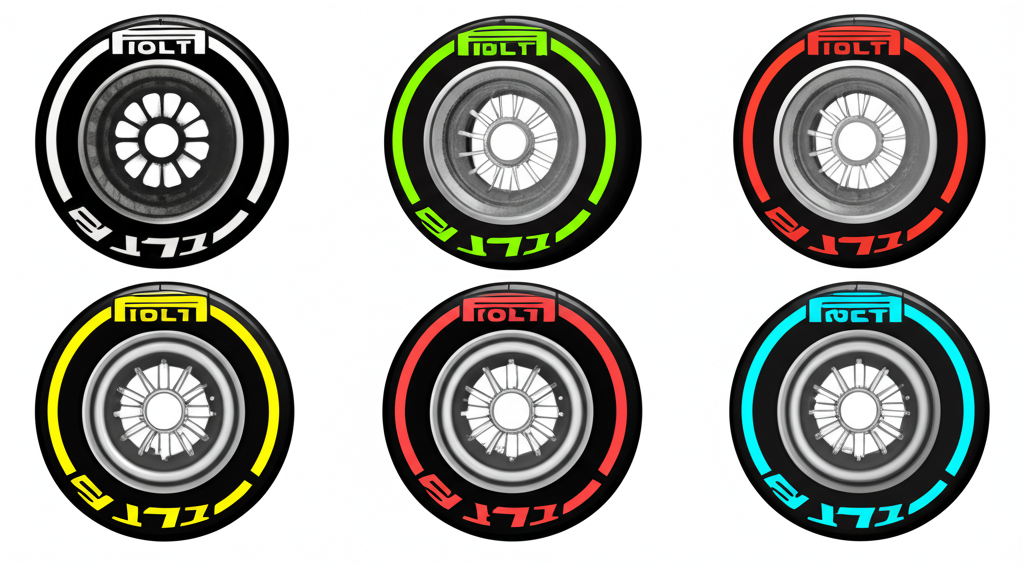
F1 Tire Compounds, Explained: From Softs to Hards
Understanding the crucial role of tires in Formula 1 strategy and performance
Formula 1 isn't just about fast cars — it's about smart tire choices. Think of tire compounds as your closet: you need the right shoes for the weather and the occasion.
The Basics
Each F1 weekend, drivers choose from three slick (dry weather) tires:
- Soft (Red): Fast but wear out quickly — stilettos at a wedding.
- Medium (Yellow): Balanced — the classic nude heels.
- Hard (White): Durable, less grip — comfy boots for long hauls.

Why It Matters
Tires influence everything from lap times to pit stop strategy. Teams must use at least two compounds during a dry race — meaning one pit stop is mandatory.
Wets & Intermediates
When it rains:
- Intermediates (Green): For light rain or drying tracks
- Full Wets (Blue): For heavy rain and standing water
But full wets are rarely used — F1 often pauses racing if conditions are too extreme.
How Do Teams Choose?
Weather, track temperature, car balance, and strategy. Sometimes drivers gamble — switching to slicks early on a drying track — and either win big or spin out.
Fashion Parallel:
It's like choosing what to wear to an outdoor wedding: you want to look good, but not sink into the grass. Tires are the drivers' style + survival tool.
